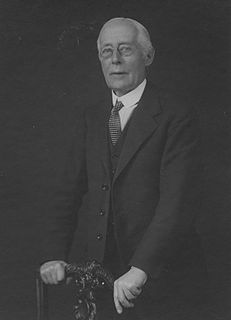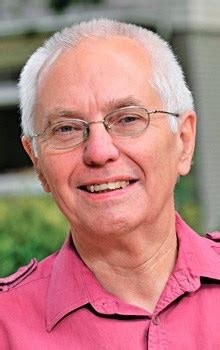Top 1001 Originally Quotes & Sayings - Page 17
Explore popular Originally quotes.
Last updated on April 22, 2025.
Flailing and thrashing, Buttercup wept and tossed and paced and wept some more, and there have been three great cases of jealousy since David of Galilee was first afflicted with the emotion when he could no longer stand the fact that his neighbor Saul's cactus outshone his own. (Originally, jealousy pertained solely to plants, other people's cactus or ginkgoes, or, later, when there was grass, grass, which is why, even to this day, we say that someone is green with jealousy.) Buttercup's case rated a close fourth on the all-time list. It was a very long and very green night.
A piratical ghost story in thirteen ingenious but potentially disturbing rhyming couplets, originally conceived as a confection both to amuse and to entertain by Mr. Neil Gaiman, scrivener, and then doodled, elaborated upon, illustrated, and beaten soundly by Mr. Cris Grimly, etcher and illuminator, featuring two brave children, their diminutive but no less courageous gazelle, and a large number of extremely dangerous trolls, monsters, bugbears, creatures, and other such nastiness, many of which have perfectly disgusting eating habits and ought not, under any circumstances, to be encouraged.
Hip-hop ain't died because of the South, that's retarded. When I named the album originally, I thought I bit off more than I could chew but you'd be an idiot to think I'm talking about how the South killed hip-hop or how New York isn't where it should be or where it once was. It was like, "Damn, I need to explain this?" But I thought, "Nah, the proof is right there. We should know what it is." I expect the hip-hop audience to be avant garde. I want them to be where I'm at or beyond where I'm at.
I met Mary [Hamill] in New York at my exhibition and when I told her about my oral history project she asked, "Would it be possible to incorporate visual art?" My sister stitches pillowcases, which led to Mary suggesting using cyanotype on them. I originally thought of the idea of pillowcases because when people get married, they have the bride and the groom lay their hands on each other's pillows while their relatives tie ribbons on their wrists. And then on the bed you usually have two pillows - one for yourself and one for your loved one - so when one is gone, one pillow remains.
Affirmative action was designed originally for "women and other minorities" but the phrase has become just another tortured euphemism. Female conscientiousness and eagerness to please have always made women good students and natural test takers. Jews have gloried in scholarship throughout the ages, and Asians of both sexes score so high on SATs and IQ tests that they regard affirmative action as an impediment. Affirmative action really means favoritism for blacks for the sake of racial peace, but the favor is pure chimera, and so, increasingly, is the peace.
Ho Chi Minh was well aware that the enemy possessed more firepower than did his own forces, and sought to use what he viewed as the superior political and moral position of his own revolutionary movement as a trump card to defeat a well-armed adversary. These ideas were originally generated during his early years as a revolutionary in the 1920s and 1930s, and continued to influence his recommendations in the wars against the French (1946-1954) and the United States (1959-1965).
Originally the structure was . . . a modern narrator who would appear intermittently and talk about his memories of his grandmother, which would then be juxtaposed against scenes from the past. But the stories from the past were always more interesting that the things in the present. I find this almost endemic to modern plays that veer between past and present. . . . So as we've gone on developing GOLDEN CHILD, the scenes from the past have become more dominant, and all that remains of the present are these two little bookends that frame the action.
Universities were not meant entirely, or even chiefly, as stepping-stones to an examination, but that there is something else which universities can teach and ought to teach-nay, which I feel quite sure they were originally meant to teach-something that may not have a marketable value before a Board of Examiners, but which has a permanent value for the whole of our life, and that is a real interest in our work, and, more than that, a love of our work, and, more than that, a true joy and happiness in our work.
I've been so fortunate throughout my career, when I was doing theater, more theater than anything else, and when I was doing films that I got a chance just to do a broad range of things. In fact, a lot of my choices that I made were about that very thing. Every project that I had an opportunity to do or chose to do, I wanted it to be different from the last thing I did, and I think that's why I have a good, you know, I had kind of a diverse kind of résumé. I'm really - it's what I set out to do as an actor originally.
Originally I had a fear of rejection at the auditions, which is a lack of self-confidence ultimately. Now I have a production company and when you can look behind the scenes at the casting process, you know it's not about rejection. It might have been the most amazing performance ever, but if the person is too tall, too short, too brown, too white, has blond hair or whatever it is, then not getting the gig may have nothing to do with the performance. You have to learn to treat auditioning as matter-of-factly as drinking a glass of water.
... And we talk it out. Lately, I've had Roy Thomas come in, and he sits and makes notes while we discuss it. Then he types them up, which gives us a written synopsis. Originally - I have a little tape recorder - I had tried taping it, but then I found no one on staff has time to listen to the tape again later. But this way he makes notes, types it quickly, I get a carbon, the artist gets a carbon ... so we don't have to worry that we'll forget what we've said.
From the very beginning, all of my films have divided the critics. Some have thought them wonderful, and others have found very little good to say. But subsequent critical opinion has always resulted in a very remarkable shift to the favorable. In one instance, the same critic who originally rapped the film has several years later put it on an all-time best list. But of course, the lasting and ultimately most important reputation of a film is not based on reviews, but on what, if anything, people say about it over the years, and on how much affection for it they have.
Over the long term, it's hard for a stock to earn a much better return that the business which underlies it earns. If the business earns six percent on capital over forty years and you hold it for that forty years, you're not going to make much different than a six percent return - even if you originally buy it at a huge discount. Conversely, if a business earns eighteen percent on capital over twenty or thirty years, even if you pay an expensive looking price, you'll end up with one hell of a result.
Originally, the atoms of carbon from which we're made were floating in the air, part of a carbon dioxide molecule. The only way to recruit these carbon atoms for the molecules necessary to support life-the carbohydrates, amino acids, proteins, and lipids-is by means of photosynthesis. Using sunlight as a catalyst the green cells of plants combine carbon atoms taken from the air with water and elements drawn from the soil to form the simple organic compounds that stand at the base of every food chain. It is more than a figure of speech to say that plants create life out of thin air.
For the Second Amendment to do its job, the other side must become much better informed. I watched an action-adventure program last night that asserted that the famous AK-47 - the original peoples' rifle (and Authority's greatest mistake) - is rare in this country, and that the only ones here were originally smuggled in from the Middle East, or possibly from South America. The idiots who wrote this mess seemed unaware that after legal imports - mostly from China - were illegally cut off by executive order, they began to be manufactured here.
Executive Severance, a laugh out loud comic mystery novel, epitomizes our current cultural moment in that it is born from the juxtaposition of authorial invention and technological communication innovation. Merging creative text with new electronic context, Robert K. Blechman's novel, which originally appeared as Twitter entries, can be read on a cell phone. His tweets which merge to form an entertaining novel can't be beat. Hold the phone; exalt in the mystery-engage with Blechman's story which signals the inception of a new literary art form.
When you advance a frontier and you do tomorrow what's never been done today, you have to innovate to make that happen. You become an innovation culture. When I grew up, every time I turned around it was, "Oh, here's the longest bridge or the deepest tunnel or the fastest airplane." And I originally thought that was just kind of like a pissing contest with men with too much testosterone. And then I realized that to make the tallest building you have to innovate. To make the fastest train you have to design the train in a way that it's never been designed before.
The 'Little' or 'Barebones' Parliament, summoned by Oliver Cromwell to meet at Westminster on 4th July, 1653, after the dissolution of the remains of the Long Parliament, may have been an unpractical body, so far as the task of administration in troublous times was concerned. But it seems quite possible that the wealth of contumely and scorn which has been poured upon it was, originally, due quite as much to the fierce anger of vested interests against outspoken criticism, as to any real vagueness or want of practical wisdom in the plans of the House itself.
I am sure," cried Catherine, "I did not mean to say anything wrong; but it is a nice book, and why should not I call it so?" "Very true," said Henry, "and this is a very nice day, and we are taking a very nice walk, and you are two very nice young ladies. Oh! It is a very nice word indeed! It does for everything. Originally perhaps it was applied only to express neatness, propriety, delicacy, or refinement—people were nice in their dress, in their sentiments, or their choice. But now every commendation on every subject is comprised in that one word.
They were indeed what was known as 'old money', which meant that it had been made so long ago that the black deeds which had originally filled the coffers were now historically irrelevant. Funny, that: a brigand for a father was something you kept quiet about, but a slave-taking pirate for a great-great-great-grandfather was something to boast of over the port. Time turned the evil bastards into rogues, and rogue was a word with a twinkle in its eye and nothing to be ashamed of.
Power always acts destructively, for its possessors are ever striving to lace all phenomena of social life into a corset of their laws to give them a definite shape. Its mental expression is dead dogma; its physical manifestation of life, brute force. This lack of intelligence in its endeavours leaves its imprint likewise on the persons of its representatives, gradually making them mentally inferior and brutal, even though they were originally excellently endowed. Nothing dulls the mind and soul of man as does the eternal monotony of routine, and power is essentially routine.
Henry Ford has several times sneered at unproductive stockholders.... Well, now. Let's see. Who made Henry Ford's own automobile company possible? The stockholders who originally advanced money to him. Who makes it possible for you and me to be carried to and from business by train or street car? Stockholders.... Who made our vast telephone and telegraph service possible? Stockholders.... Were stockholders all over the country to withdraw their capital from the enterprises in which they are invested, there would be a panic ... on a scale never before known.
We want everything in a hurry because our primary aim must be survival in the short term. Long term thinking has seemed like a luxury in human history because lives were shorter, but with our increased longevity we have to figure out what to DO with all our time, and to pace ourselves to achieve things that we want. Hobbes might have been right when he originally wrote that life is 'nasty, poor, brutish and short', but today we are AWASH with time.
Where was the use, originally, in rushing this whole globe through in six days? It is likely that if more time had been taken in the first place, the world would have been made right, and this ceaseless improving and repairing would not be necessary now. But if you hurry a world or a house, you are nearly sure to find out by and by that you have left out a towhead, or a broom-closet, or some other little convenience, here and there, which has got to be supplied, no matter how much expense or vexation it may cost.
When you wake up and your heart is going like the clappers or your back feels strained, or you develop some other hang-up, you should let your mind go to the pain and the pain itself will regurgitate the memory which originally caused you to suppress it in your body. In this way the pain goes to the right channel instead of being repressed again, as it is if you take a pill or a bath, saying 'Well, I'll get over it'. Most people channel their pain into God or masturbation or some dream of making it.
... for our sake loosing within Himself the bonds of bodily birth, He granted us through spiritual birth, according to our own volition, power to become children of God instead of children of flesh and blood if we have faith in His Name (cf. Jn. 1:12-13). For the Savior the sequence was, first of all, incarnation and bodily birth for my sake; and so thereupon the birth in the Spirit through baptism, originally spurned by Adam, for the sake of my salvation and restoration by grace, or, to describe it even more vividly, my very remaking.
Parasites are not only incredibly diverse; they are also incredibly successful. There are parasitic stretches of DNA in your own genes, some of which are called retrotransposons. Many of the parasitic stretches were originally viruses that entered our DNA. Most of them don't do us any harm. They just copy and insert themselves in other parts of our DNA, basically replicating themselves. Sometimes they hop into other species and replicate themselves in a new host. According to one estimate, roughly one-third to one-half of all human DNA is basically parasitic.
Most governments, not all of them, but most, certainly don't want their citizens using gold. They want them in the currency that they are creating. When they are debasing money, or printing money, they are spending it and they want it to have as much value as possible when they originally spend it. Of course once they spend it, it will lose value for them and everyone else that holds it. But they need demand for their currency. They need as many people as possible holding it and transacting it. The more people that use gold, the harder it makes it.
We modern people think of miracles as the suspension of the natural order, but Jesus meant them to be the restoration of the natural order. The Bible tells us that God did not originally make the world to have disease, hunger, and death in it. Jesus has come to redeem where it is wrong and heal the world where it is broken. His miracles are not just proofs that he has power but also wonderful foretastes of what he is going to do with that power. Jesus' miracles are not just a challenge to our minds, but a promise to our hearts, that the world we all want is coming.
Flamenco is Arabic music and rhythms filtered through centuries of gypsies making music. The gypsies themselves came originally from India. And then there is the Caribbean influences... This whole idea that there is any such thing in music that "purity" is bunk, it just doesn't exist. I love that I am playing these rhythms to people. And the next time they hear something that's maybe a little more exotic, I have created a little bridge, and they are going, "Oh, this actually sounds really cool. It reminds me a little bit of that, but it's something different."
Coal, oil and gas are called fossil fuels, because they are mostly made of the fossil remains of beings from long ago. The chemical energy within them is a kind of stored sunlight originally accumulated by ancient plants. Our civilization runs by burning the remains of humble creatures who inhabited the Earth hundreds of millions of years before the first humans came on the scene. Like some ghastly cannibal cult, we subsist on the dead bodies of our ancestors and distant relatives. - Dr. Carl Sagan
The Bible is a collection of writings by lots of different people written over maybe a thousand years, from a number of centuries before Jesus to a century after Jesus. I often like to refer to it as "the Scriptures" to make that point about it being lots of writings that were originally separate. What these writings have in common is that "the Old Testament" is writings that grabbed the Jewish people; writings that convinced them that they were God's word to them. And "the New Testament" is writings that grabbed people who believed in Jesus in the same way.
The Iranian issue I don't think has much to do with nuclear weapons frankly. Nobody is saying Iran should have nuclear weapons nor should anybody else. But the point in the Middle East, as distinct from North Korea, is that this is center of the world's energy resources. Originally the British and secondarily the French had dominated it, but after the Second World War, it's been a U.S. preserve. That's been an axiom of U.S. foreign policy, that it must control Middle East energy resources.
In the '50s and in the '60s, the private insurance system originally was a benefit for the bureaucrats in Germany. And this system became ever bigger because the private insurance industry lobbied successfully for making this system bigger. In the '70s and in the '80s, they managed to find a system where they could take everyone beyond 40,000 euros income per year but didn't have to take everyone. So they only took those that had both high income and a secure job and who was not ill at that time.
I've been an artist forever. I started when I was in the third grade. I drew drawings of monsters and I sold them to my classmates for a dime. I studied painting. Originally I was a design and illustration major, but I met this girl. Back then, if you were a designer, you were a real sellout, and she was a real hardcore painter. I knew she would never take me seriously unless I was an art major, so I switched majors to fine arts. Anyway, we're married now. So it worked. How I got to my style? I'm a weird artist in that everything I do looks a little different.
Disagreement produces debate but dissent produces dissension. Dissent (which come from the Latin, dis and sentire) means originally to feel apart from others. People who disagree have an argument, but people who dissent have a quarrel. People may disagree and both may count themselves in the majority. But a person who dissents is by definition in a minority. A liberal society thrives on disagreement but is killed by dissension. Disagreement is the life blood of democracy, dissension is its cancer.
In this way the ego detaches itself from the external world. It is more correct to say: Originally the ego includes everything, later it detaches from itself the external world. The ego-feeling we are aware of now is thus only a shrunken vestige of a far more extensive feeling - a feeling which embraced the universe and expressed an inseparable connection of the ego with the external world.
For example, John Law's Mississippi Company venture printed shares, and the money had gone up in smoke when it had been inscribed objects. The inscription made it magic and changed its meaning. That's how objects become charmed in The Arabian Nights, and they are often originally ordinary objects. The carpet is an ordinary, paltry object. The lamp is a rusty old lamp, and the bottles jinns are imprisoned within are old bottles. They are changed by the magic and the jinn's presence, and the jinn's presence is often embodied in the seal or inscription.
I want to create a rapid response team, right around the world, perhaps starting originally with our partners, similar to the one we have in the United Nations whereby, where there's a problem in our society which demands a compassionate response, an educated, informed, not just a splurgy emotional thing, but an informed compassionate response that puts yourself in the position of the other and sees all sides of the problem, not just your own, there'll be somebody poised in each society who can write to the media, write an op-ed piece, to go on TV or radio.
... the word "theory" ... was originally an Orphic word, which Cornford interprets as "passionate sympathetic contemplation" ... For Pythagoras, the "passionate sympathetic contemplation" was intellectual, and issued in mathematical knowledge ... To those who have reluctantly learnt a little mathematics in school this may seem strange; but to those who have experienced the intoxicating delight of sudden understanding that mathematics gives, from time to time, to those who love it, the Pythagorean view will seem completely natural.
I always try to write a song, I never just want to write a record. Originally I was not writing songs for myself. ....And I can say this, most of the people who have recorded my songs are songwriters themselves. ... Even if I don't release it myself, somebody else might hear it and want to record it. When you write a song, it gives it that potential. When you write a song, a song has longevity. ... So I wanted to sing inspirational music, and that's exactly how I approached it-only the words have been changed to declare my relationship with God. Songwriting is my gift from God.








































